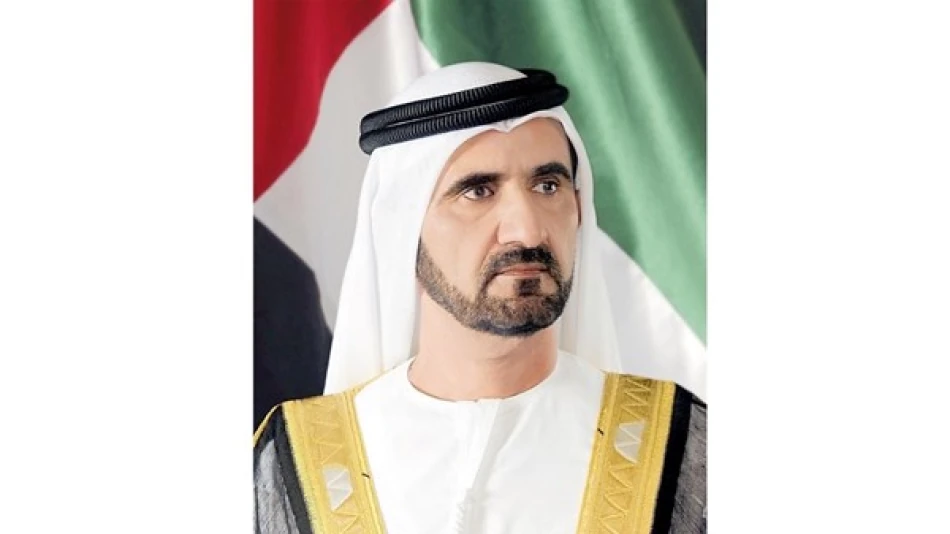
Dubai's Ruler Enacts New Law to Streamline Mediation Practices
Dubai Overhauls Legal Mediation Framework in Push for Enhanced Judicial Efficiency
Dubai's ruler Sheikh Mohammed bin Rashid Al Maktoum has enacted comprehensive amendments to the emirate's mediation law, replacing ten key provisions in a move that signals Dubai's commitment to modernizing its legal infrastructure. The reforms aim to strengthen the emirate's position as a global business hub by streamlining dispute resolution mechanisms and enhancing judicial efficiency.
Strategic Legal Modernization
The amendments to Dubai's mediation law represent more than routine legal updates—they reflect a broader strategy to maintain the emirate's competitive edge in attracting international business and investment. By overhauling ten articles of the original legislation, Dubai is addressing practical challenges that have emerged in its rapidly evolving commercial landscape.
The timing of these reforms is particularly significant as Dubai continues to position itself as a bridge between East and West for global commerce. Efficient dispute resolution mechanisms are crucial for maintaining investor confidence, especially as the emirate competes with other international financial centers like Singapore and Hong Kong.
Business and Investment Implications
Enhanced Commercial Appeal
For international businesses operating in Dubai, streamlined mediation processes could translate into reduced legal costs and faster resolution times. This is particularly important for the emirate's thriving sectors including real estate, trade, and financial services, where commercial disputes can significantly impact business operations.
The reforms also align with Dubai's broader vision of becoming a top-three global financial center by 2030. Reliable and efficient legal frameworks are essential infrastructure for achieving this ambitious goal, as they directly influence where multinational corporations choose to establish their regional headquarters.
Regional Competition Context
Dubai's legal system modernization comes as regional competitors intensify their efforts to attract international business. Saudi Arabia's NEOM project and Qatar's expanding commercial sector have created pressure on Dubai to continuously enhance its business environment. Efficient mediation processes provide a tangible advantage in this competition.
The UAE's federal structure allows individual emirates to tailor their legal frameworks to local needs while maintaining consistency with national law. This flexibility has historically been one of Dubai's strengths in adapting quickly to changing business requirements.
Broader Implications for Legal Innovation
These amendments reflect Dubai's proactive approach to legal innovation, which has previously included the establishment of specialized courts for different sectors and the integration of technology in judicial processes. The emirate's willingness to regularly update its legal framework demonstrates institutional agility that international businesses value highly.
As global supply chains become increasingly complex and cross-border commerce grows, jurisdictions with sophisticated yet accessible dispute resolution mechanisms will likely capture a larger share of international business activity. Dubai's latest legal reforms position the emirate to benefit from this trend while reinforcing its reputation as a pragmatic and business-friendly jurisdiction.
Most Viewed News

 Layla Al Mansoori
Layla Al Mansoori






